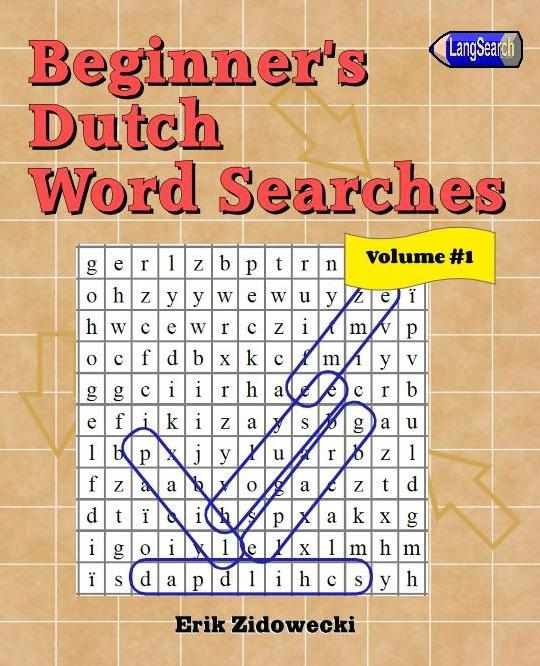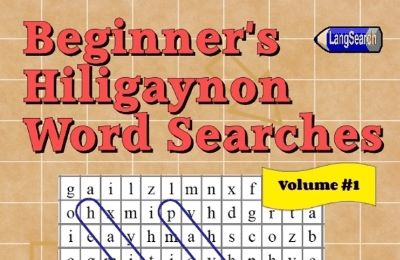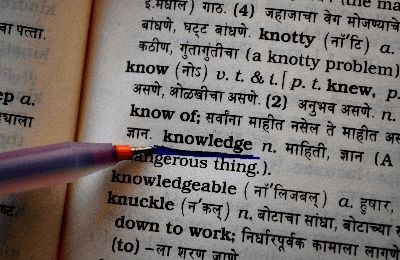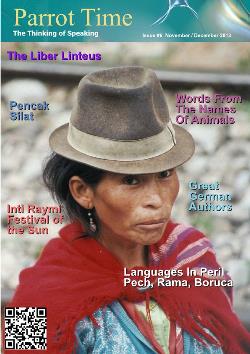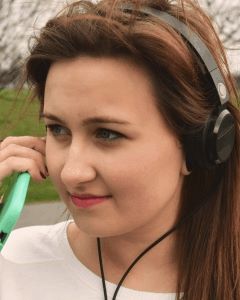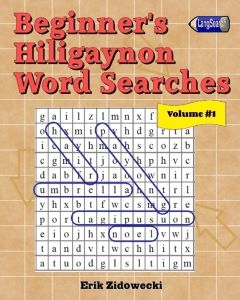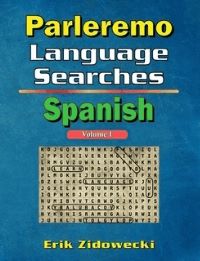How it All Started: PluraLing

This article has two parts.
Briefly, what PluraLing can do for you? How I came to build PluraLing 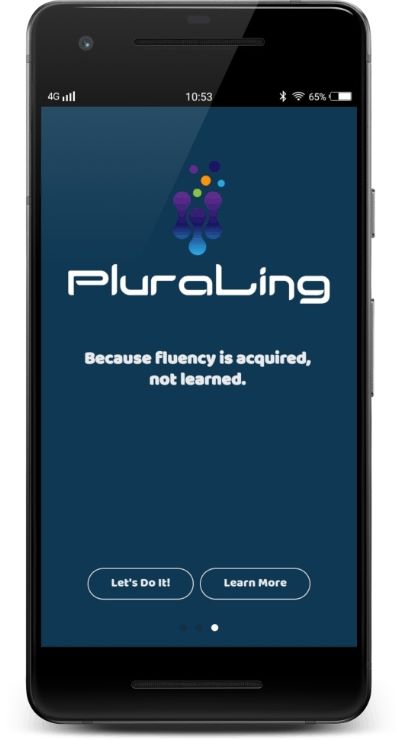 Traveling abroad, I really wanted to learn to speak with the locals. I started looking for method and apps that will work for me. Most apps teach a single language and so I thought this is indeed required because “learning Chinese is not the same as learning French” as was put in one app. I always wondered how babies and young kids do that. Do they all follow different learning structures? Is it really that different? Fast forward a few years. I routinely checked the app stores for something that can help me. I did find a few that were remarkably better than others. Still, none could, in a rather short span of time, allow me to be able to converse, even simply. I wasn’t getting the confident I needed required to speak. One approach was significantly better than others, especially if one wants to improve his or her speaking abilities and it was indeed the same method for all languages, as I suspected long ago. This was the Pimsleur method. I was able, after departing from many dozens of $$, to speak Arabic with my grandmother, only 2-3 weeks into the program and only 30 minutes a day. Next, without neglecting my Russian side, was able after a single month to sit down with my other grandmother and slowly speak casual conversation for over 10 minutes! Admittedly, I understand not more than 60% (which is a lot by the way) But the best part, I was able to ask questions and point to what I don’t understand. Progress came fast with these tools in mind. Pimsleur helped me getting into the correct mindset with languages. It gave me the tools to understand how to unlock a language. Next was Thai. I started to learn Thai without actually being in Thailand and when we traveled there, locals (as well as myself) were amazed. My speaking abilities were improved with Pimpleur more than with any other app. It really worked. The thing I like about the method is that it gives you a whole situation to talk about. Grammar didn’t matter. It felt natural. I was able to deliver a whole idea, get answers and feedback instantly when conversing with others and do all that after even a few lessons. It gave me confidence. 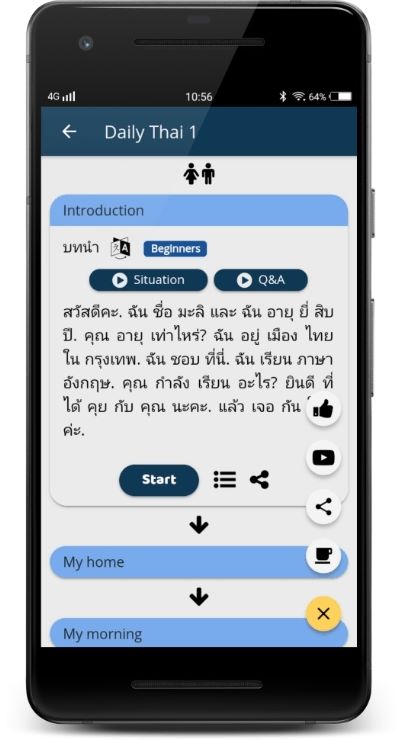 After the fairy dust had settled with Pimsleur, I realized there are a few things that hold me back within the method. It was too slow for me, as well as for others. Second, as an offline, static method without any feedback from the method itself, I was repeating many phrases I already knew. And by design, it cannot be fixed because you can’t start a new lesson without the “hello, how are you” first. It won’t make sense. If only there was a button that could tell the method “don’t teach me that phrase never again”. “Don’t ask me how to say ‘green apples’ because I already know how to say ‘I like green apples a lot’”. But there isn’t such a button in Pimsleur. One might think that this can be solved with a simple spaced repetition system but it can’t. There is no relation between cards in a simple SRS. So I had to keep listening to those phrases I already know so well, again and again and then again. It was frustrating. With Pimsleur, it had a toll on my progress, it was just too slow. Third, some phrases I didn’t hear correctly. The Thai language has some pretty difficult sounds. If only I could take a glimpse on the word. “Was that /dg/ or /ch/?” crossed my mind many times. With other apps I was forced to actively learn grammar rules and / or learn to read, at least to some extent. Otherwise, I couldn’t make any progress. Of course, reading is important to be able to speak correctly, I understand that and I actually am learning to read the languages I deal with and it does help. But, I don’t want it in the same app or at least at the same time. I want focus. I want to learn to speak, then focus on reading on another day. Mixing the two uses, for me, different aspects in my brain which don’t mix well. Trying to refine my method to a bare minimum, I wanted an app that didn’t exist. Considering all the problems above, and being a developer myself, I rolled up my sleeves and sat to work. The end result is PluraLing. An app which focuses on a situation. A situation is simply a short conversation that could be used as a whole. You won’t need anything else and grammar won’t matter! I worked hard and solved all these problems I encountered. 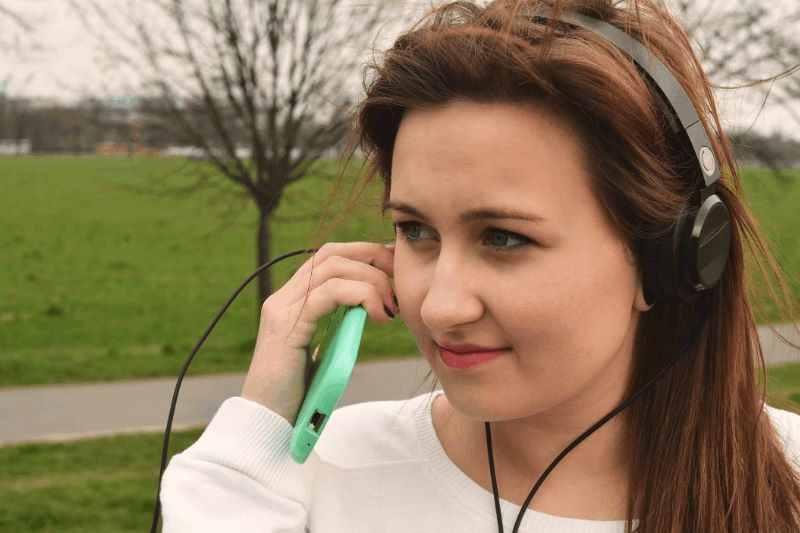 With PluraLing, I can learn a single situation which I can use as a whole and it doesn’t even take an hour to master. With PluraLing, phrases I know well will not be shown to me, like in a simple SRS app but. Furthermore, and this is where PluraLing goes beyond, we also accommodate these features:
1. Phrases I really know will never be shown again. For example, if PluraLing sees that I know and understand “I ate an apple yesterday”, then phrases like “I ate yesterday” and “I ate an apple” and also “an apple” are dismissed and will not be shown again. In PluraLing we understand that:
 What PluraLing is all about Babies and kids learn to speak and understand without much effort while gaining total fluency. Do they actively learn grammar or understand the sentence structure? Consciously, not at all. Conscious grammar learning is not enough and surprisingly, memorizing rules can actually hold you back. Languages are being taught by parents the same way all over the world, in any culture, only by listening, repeating and speaking. So is in PluraLing. Parents introduce new content while increasing complexity as understanding grows and so is in PluraLing. 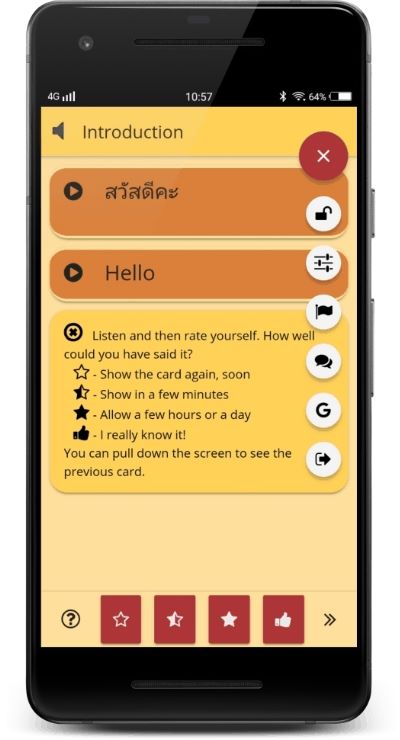 PluraLing teaches you like a child, bypassing grammar, sentence structures and tables, letting you focus on fluency, giving you the tools to speak right from the start! PluraLing adjusts itself, listen to and react to your learning velocity. PluraLing starts simple but is getting fast to your level and does so automatically using priority algorithms that know what is considered simple or complex for you based on your knowledge and will increase or reduce complexity over time. PluraLing observes your learning style and keeps track of it all the time. It lives and breathes with you as you gain progress. And progress you will and as you do, you will encounter phrases that are just a bit above your level, phrases that you are ready to learn, no more, no less. This is not just a simple cards app but rather one that is based on your knowledge. It's prioritized, ordered and always in context. PluraLing delivers bite-size content (Situations) you can master fast. A situation is a set of well-organized, dynamic spaced-repetition-based cards. These cards are related to each other in a complexity-oriented way. Each phrase knows its place in your learning eco-universe so that simpler-to-you phrases will be dismissed faster while little more complex ones will be reviewed shortly. A natural ability to use the material in a real conversation from day one! PluraLing's logic, intelligence and wisdom will take you right to that place. So how do we do that? We have developed a system that reduce to a minimum the time and efforts required to acquire fluency. 1. By scientifically eliminating unnecessary waste that is often part of the learning path, such as single-word memorizing (as the only method of studying), such as listening without context, such as learning grammar tables and rules and trying to rationalize the language acquiring process. We make no grammatical analysis. 2. By understanding that your level may vary within the scope of different situations. Thus we have developed a dynamic way to fast pinpoint your level and focus on what is slightly above your current level of competence, always keeping you intrigued and challenged. Your calculated level is always validated behind the scenes and so it stays accurate over time. 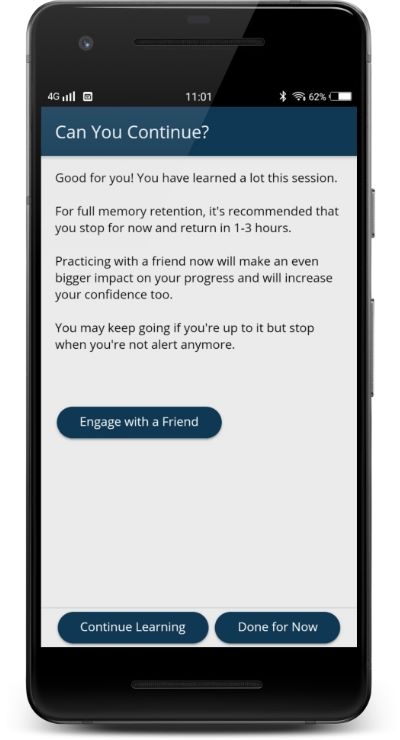 3. By always showing you relevant content that can be used immediately. 4. By changing what you are about to learn based on your current progress. We call that your foreseen learning material. This is the next level of SRS learning. No more unrelated, unprioritized, static cards game. 5. By never showing you learning material you absolutely know well already. Why PluraLing? Because fluency is acquired, not learned. All recordings are real and all translations are hand-made. Guy Catz is a language lover and programmer who currently lives in Thailand with his family, after nearly 20 years in the IT industry as they were pulled back to their old love - traveling. They moved there six years ago from Israel.
|
| How it All Started: PluraLing | ||||
| Writer: | Guy Catz | |||
| Images: | ||||
| ||||
All images are Copyright - CC BY-SA (Creative Commons Share Alike) by their respective owners, except for Petey, which is Public Domain (PD) or unless otherwise noted.
|
Searching for language resources? Find entertaining and educational books for learning a language at Scriveremo Publishing. Just click the link below to find learning books for more than 30 languages!
| |
comments powered by Disqus
